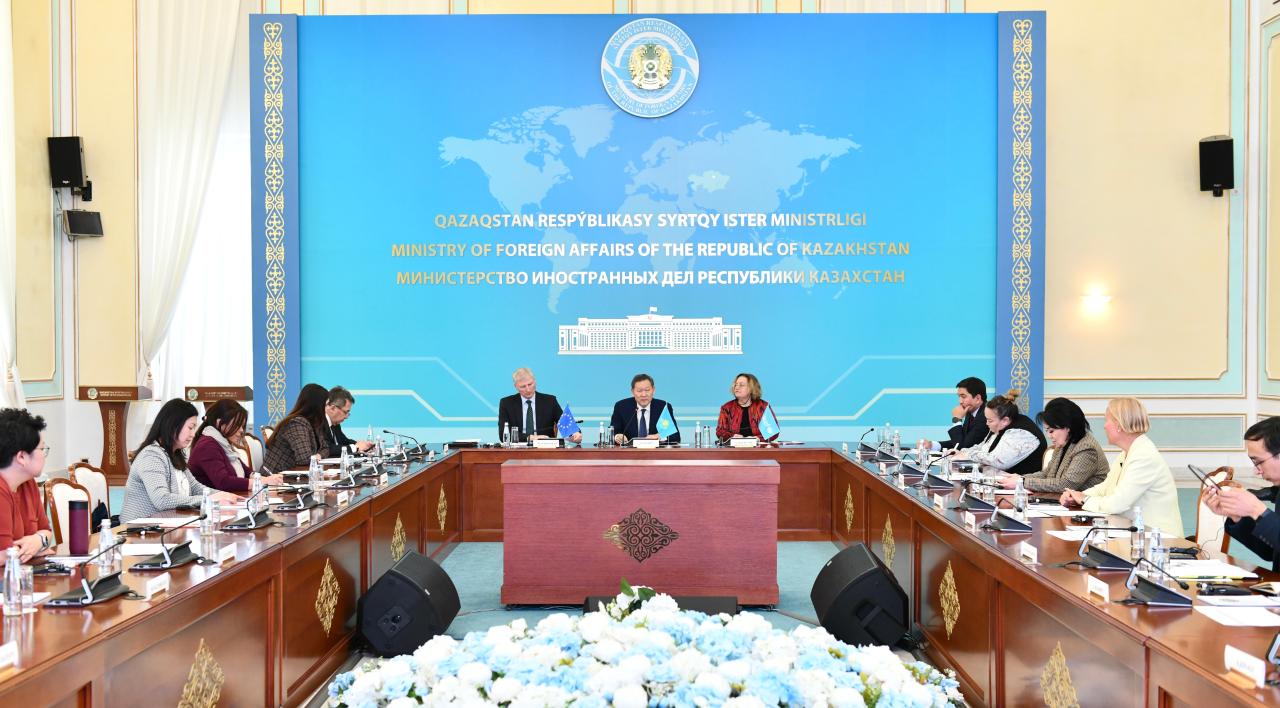ASTANA: The first meeting of the coordination working group for the joint program of the United Nations Children’s Fund (UNICEF), the European Union (EU), and Kazakhstan took place , focusing on the second component of the EU and United Nations’ support to Central Asian states and their citizens returning from conflict zones.
Addressing participants, First Deputy Foreign Minister Kairat Umarov highlighted the significant efforts of the government and non-governmental sectors in rehabilitating and reintegrating citizens, including children, following the Zhusan and Rusafa distinctive humanitarian operations.
As integral components of the nation’s initiatives to repatriate its citizens from Syria and Iraq, these humanitarian missions were executed through diverse channels by the Kazakh government to locate children caught in conflict zones and isolated in camps. In sum, they facilitated the return of 526 children to Kazakhstan. Such operations not only distinguish Kazakhstan within Central Asia but also resonate on a global scale, marking a notable effort in the realm of humanitarian action.
“Such a unique experience can be useful for other countries and replicated in troubled regions,” said Umarov.
Kestutis Jankauskas, the EU Ambassador to Kazakhstan, expressed pleasure in witnessing the positive results of the collaboration between UNICEF, the EU, and Kazakhstan, which created conditions for the successful adaptation of children in society.
Representatives of the Committee for the Protection of Children’s Rights at the Ministry of Education outlined critical progress in implementing the project’s first phase to support citizens returning from conflict zones.
As part of the program, 130 Kazakh specialists underwent training to provide socio-psychological assistance to families and children returning from conflict zones. The Gumilyov Eurasian National University has established the National Resource Center for the training and professional development of specialists working with returning women and children.
Participants also discussed strengthening the child protection system in Kazakhstan to ensure that all vulnerable children have access to quality social services.


